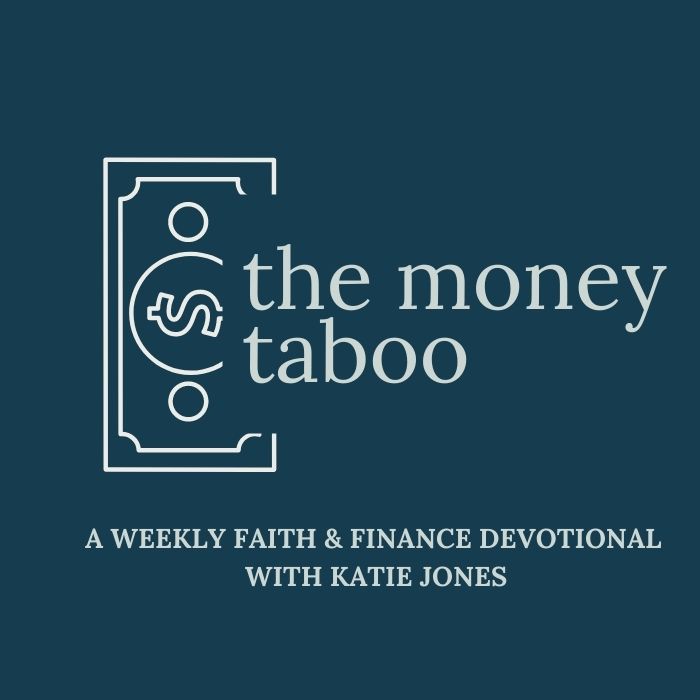What Does The Bible Say About Consumerism?
Just this morning while I was on a bike at the gym, I opened my Amazon App, added a 4 pack of dried apricots and a 6 pack of deodorant to my shopping cart. As I was checking out, I realized I had the opportunity to have these items delivered to my house this afternoon. The realization that I would have these products in a mere few hours made me giddy!
How many times have you gone on Amazon or some other online marketplace to make a purchase and have gotten disappointed by the fact that your desired item wouldn’t be there for 7-10 business days.
We have become so accustomed to buying what we want when we want it. These days, we can make purchases and have them delivered within a matter of hours! This is incredible but also a bit insane. Don’t get me wrong, I love the fact that I don’t have to leave my house and make the trek to the mall to buy things anymore. It seems like such an inconvenience.
But after I made my purchase this morning from the gym, I wondered what effect all of these innovations in the name of“convenience” have had on my soul.

Here’s the big list of money topics in the Bible, and here is a list of over 100 Bible verses about money.
What is Consumerism?
I believe that consumerism was never meant to be a derogatory word. In fact, the first definition in the Oxford Dictionary says that consumerism is “the protection or promotion of the interests of consumers.” A focus on the interests of their customers leads organizations to improve their goods and services.
God does command excellence from his followers, in fact there are plenty of Bible verses about excellence. We are called to be set apart and to do good works. In his book, Master of One, Jordan Raynor creates the case that Jesus was the ultimate example of how we are to work with excellence, and one of the main things He did was to be others-focused.
However, in the name of consumer interests, big companies and organizations now seek to provide as many conveniences as possible in order to encourage a never-ending cycle of consumption. Think about how easy it was for me to buy deodorant and dried apricots while sitting on a bike at the gym!
Now we have people, such as Roger Gottlieb, who say that “Consumerism teaches that the central goal of human existence is the satisfaction of an ever growing, ever changing array of personal desires.” Most people living in western countries feel they deserve to pursue happiness and achieve the “good life.”
Investopedia defines consumerism as, “the idea that increasing the consumption of goods and services purchased in the market is always a desirable goal and that a person’s wellbeing and happiness depend fundamentally on obtaining consumer goods and material possessions.”
Does our well-being and happiness really depend on obtaining more and better?? The thing is, I don’t know that the average person would confess that their happiness depends on buying a new car, house, appliance, clothes, food, vacations, etc. If you took a moment to reflect and be honest with yourself, there is probably always something that you are pining after… (for me it’s a new house…)
At what point are we crossing the line into greed – that sin that we are warned against many times throughout the Bible? What does the Bible say about consumerism? And is the “good life” even something we should be pursuing as followers of Christ?
Interestingly, when I talk to Christians about the topic of money, I find that many fall into one of two camps. The first group believes that God will ultimately lead us to a life of monetary prosperity. While the other group believes that to have lots of money is inherently against biblical values of living.
So which is correct?
The Prosperity Gospel
Take a moment and read through the verses below. What feelings and thoughts come to mind as you read through them?
- Bring the whole tithe into the storehouse, that there may be food in my house. Test me in this,” says the Lord Almighty, “and see if I will not throw open the floodgates of heaven and pour out so much blessing that there will not be room enough to store it. (Malachi 3:10 NIV)
- If you, then, though you are evil, know how to give good gifts to your children, how much more will your Father in heaven give good gifts to those who ask him! (Matthew 7:11 NIV)
- And whatever you ask in prayer, you will receive, if you have faith. (Matthew 21:22 ESV)
- The thief’s purpose is to steal and kill and destroy. My purpose is to give them a rich and satisfying life. (John 10:10 NLV)
These are a few of the key verses that preachers of the Prosperity Gospel base their beliefs on.
“The prosperity gospel is an umbrella term for a group of ideas… that equate Christian faith with material, and particularly financial, success.” says Tara Isabella Burton in her article on Joel Osteen. Joel Osteen, arguably the most well-known teacher of the Prosperity Gospel, preaches a gospel that promises that if you work hard and pray with enough faith, God will bless you financially and physically.
The Prosperity Gospel promotes two main points, one being that God loves his children so much why wouldn’t he want to lavish them with prosperity? The second being that God blesses those children who prove they are worth blessing; through their acts.
In a TIME poll, 17% of Christians surveyed said they considered themselves part of such a movement, while a full 61% believed that God wants people to be prosperous. And 31%–a far higher percentage than there are Pentecostals in America–agreed that if you give your money to God, God will bless you with more money.
“Prosperity theology—“health and wealth,” “name it and claim it,” and so on—turns God’s commands into formulas and faithful obedience into a kind of magic.” says pastor Jared C. Wilson in a Christianity Today article.
Maybe you believe this yourself. Because who doesn’t want a God who exists to shower us with nice homes, great cars, trendy clothes, and tons of cash??
Or maybe you are reading this with a bit of disgust, as you feel that having money at all is just not what God wants for any of his followers. Or does he?
Does God Want To Bless Us With Money?
The thing is, that I actually believe that God DOES want to bless us with monetary resources. But before you scroll down to the bottom of this article and post a nasty comment, hear me out…
As you read through the Bible, you begin to recognize a pattern… God makes a promise, typically to bless his people really really well. His people mess up. God punishes them. There is repentance and forgiveness then God makes a new promise and the cycle continues.
You see, there is a bit of truth to what preachers such as Joel Osteen are teaching. God wants to bless you. In fact, God wants to bless you abundantly. Go back and read those verses or check out some of these verses on God providing.
However, as Art Lindsley says in his introduction of the book Counting the Cost: Christian Perspectives on Capitalism, “…a half-truth taken as the whole truth becomes an untruth.”
The Bible provides us with literally thousands of verses about money, and one central theme is always evident, money has the power to corrupt the soul. This is why in Matthew 6:24 we are warned that we cannot serve both God and money.
So that leaves us in a bit of a conundrum… Does God want to bless us abundantly with financial resources? Or does he want us to avoid money at all costs? There is a huge discrepancy between what followers of the Prosperity Gospel believe and what the true Gospel teaches, and that is the purpose of God’s blessings.

God’s Financial Blessings Explained
There are a few clues throughout the New Testament that Jesus himself may have been somewhat wealthy. But just the fact that it is difficult to prove that Jesus may have had a lot of money goes to show that the purpose of having wealth is not to indulge ourselves in comforts and conveniences. Otherwise, why didn’t Jesus indulge himself in more luxuries?
Those who live under the umbrella of the Prosperity Gospel believe that God’s intention for financial blessings is so they can live free from all financial hardships and rather live lavish, luxurious, and comfortable lives. A life that agrees with the definition of consumerism. This is the epitome of “gaining the world, which is what Jesus warns us against in Matthew 16.
“What good will it be for someone to gain the whole world, yet forfeit their soul? Or what can anyone give in exchange for their soul?” Matthew 16:26 (NIV)
As one blogger puts it, “[Jesus] criticizes hypocrites such as the Pharisees for twisting the God-worshipping activities of giving (Matthew 6:1) and praying (Matthew 6:5) into attempts to earn the world’s approval. And He says that earthly riches create a strong barrier between would-be Christ-followers and the kingdom of God (Mark 10:17–25).”
So if God wants to bless us abundantly, but at the same time, doesn’t want our happiness and wellbeing to be dependent on money and possessions, what does he want us to do with that money? How do we avoid abusing the financial blessing God gives us?

The Answer to Consumerism
I believe the best answer to this question can be found in Paul’s 2nd letter to the Corinthians.
And God is able to bless you abundantly, so that in all things at all times, having all that you need, you will abound in every good work. As it is written: “They have freely scattered their gifts to the poor; their righteousness endures forever.”[a] Now he who supplies seed to the sower and bread for food will also supply and increase your store of seed and will enlarge the harvest of your righteousness. You will be enriched in every way so that you can be generous on every occasion, and through us your generosity will result in thanksgiving to God. This service that you perform is not only supplying the needs of the Lord’s people but is also overflowing in many expressions of thanks to God. 2 Corinthians 9:8-12 (NIV)
To resist the temptation to be seduced by consumerism, we need to learn to become “conduits of generosity,” as my friend Art Rainer describes it.
In a brilliant article from The Institute for Faith, Work, and Economics, “Greed is a pursuit of personal gain that neglects the common good and places ultimate value on the material prosperity. It results in serving money as a master and excessively valuing possessions on earth.”
From Genesis onward, the remainder of the Old Testament is packed with depictions of divine material blessing, from Israel’s promised land of Canaan to the prophets. At the same time, material blessings are given with an end: to make the name of God great and to love and serve our neighbors.
The purpose of our money is not to collect more cool stuff or experiences, to achieve a really high net worth, or to become financially independent, though these things are not inherently evil. If we truly desire to partner with Christ on his mission to redeem the world, and if we honestly want to work against the temptation of consumerism, we need to learn to be content with what we have so we can direct our resources toward kingdom-building endeavors.
That’s why I believe it’s a bit more important to track our giving rather than only focus on growing our net worth.
Besides, the “good life” that the world tells us is only achievable through the collection of material goods or earthly experiences is all a big lie. The goodness that is available for us to experience here on earth can not be separated from the knowledge and service of God. Goodness, as the biblical writers express, is found in right relationships and behavior according to the Word.
Related: 57 Bible Verses About Gratitude That Will Inspire Your Generosity
Want to Continue This Conversation?
Inside the Redeeming Your Finances Collective we hold LIVE events for you to participate in conversations just like this. We strive to make money less taboo of a topic within the Christian community. Learn from guest speakers, get your questions answered, and gain access to exclusive money tools, templates, and resources to help you bring your faith into your money management.
You May Also Like
What Does the Bible Say About Budgeting?
Bible Verses About Debt
7 Biblical Principles Every Christian Should Know About Their Finances
5 of the Best Books about Faith and Money



